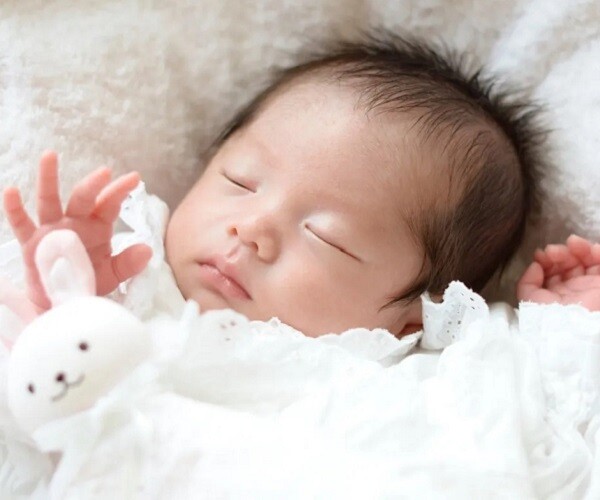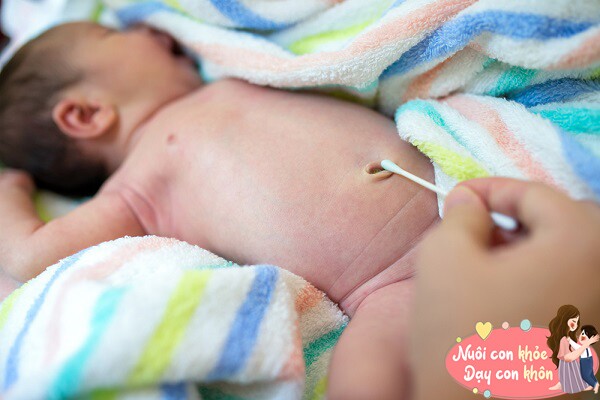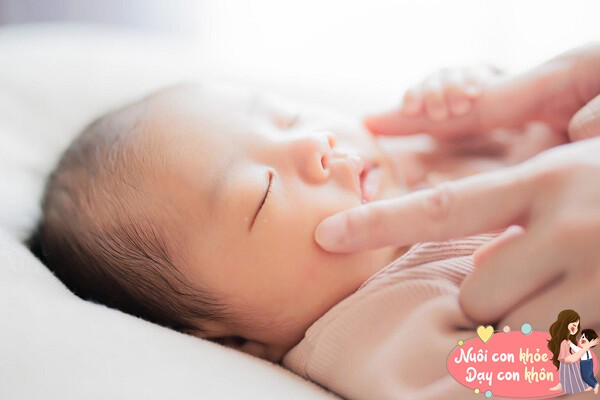Touching a newborn is a sensitive matter that requires caution. Experts warn that there are three parts of a newborn’s body that parents should be careful when touching to avoid affecting the baby’s development and health.


Baby’s Soft Spot
There is a soft, diamond-shaped area near the front of an infant’s head called the anterior fontanel or soft spot. When the baby kicks or cries, this area may slightly bulge, clearly indicating brain activity and development. The soft spot plays a crucial role in an infant’s development as it allows room for brain growth and expansion during the first few months of life.
The average closure time for the soft spot is around 18 months, but this can vary between 12 to 24 months. This part is relatively sensitive and closely related to brain development. During this period, the brain is growing rapidly, and the soft spot acts as a “window” that allows the brain to expand without being restricted by the skull.
Therefore, touch the soft spot as little as possible. When cleaning the scalp area, be gentle and avoid pressing or touching it with hard or hot objects, as this can easily damage this sensitive area.

Baby’s Soft Spot.
Additionally, it is common for cradle cap to appear on the soft spot. This is entirely normal, and parents should not try to clean it excessively. These flakes will usually come off naturally when bathing or shampooing the baby, so there is no need for excessive intervention.
In general, parents should refrain from touching this area with their hands. If necessary, use a soft, damp cloth to gently clean the surrounding area without directly touching the soft spot.

Baby’s Belly Button
Like the soft spot, the belly button is also a sensitive area. As we know, the umbilical cord is responsible for transporting nutrients and oxygen from the mother to the fetus in the womb, and it also helps remove waste from the fetus’s body. After birth, the umbilical cord is cut, leaving a small stub attached to the baby’s body. Normally, this stub will dry out and fall off on its own within 5 to 15 days.
Even though the crust around the belly button has come off, the skin in this area is still relatively delicate and sensitive. Therefore, proper care and hygiene are crucial to prevent infections or other potential issues. If there is dirt or oily residue on the belly button, parents should use a cotton swab dipped in sterile water or saline solution to gently clean the area.

Baby’s Belly Button.
Do not poke or squeeze the belly button, as this can cause injury and lead to infection. Squeezing or rubbing too hard can damage the delicate skin, creating an opportunity for bacteria to enter and cause unwanted complications. If you notice any swelling, redness, or foul odor around the belly button, consult a doctor immediately for advice and timely treatment.
Moreover, to protect the baby’s belly button, keep the area dry and airy. Avoid dressing the baby in tight-fitting clothes or fabrics that may irritate the skin. Instead, opt for soft, breathable outfits to ensure comfort.

Baby’s Face
Many people will want to pinch a baby’s chubby cheeks, especially during adorable moments. However, if you find yourself in this situation, it is important to refrain from doing so! Pinching a baby’s cheeks can have potential negative consequences for their health.
Frequently pinching a baby’s cheeks can affect the development of the parotid gland, an important gland in the salivary system. Overstimulation of this gland can lead to excessive saliva production, causing discomfort for the baby or even digestive issues.
Furthermore, newborns have weak immune systems, and touching their faces can easily transmit bacteria from adults’ hands to the baby’s body.

Baby’s Face.
During the “oral stage,” babies tend to stick out their tongues and lick their fingers when someone reaches out to them. This increases the risk of gastrointestinal infections as bacteria from the adult’s hand can enter the baby’s mouth. There is a saying, “illness enters through the mouth,” and this is especially pertinent when it comes to the health of newborns.
Additionally, pinching a baby’s cheeks can impact their psychology and emotions. If the baby feels uncomfortable from being touched, they may become shy and lack confidence. Instead of creating happy memories, this action can leave a negative impression in their minds, making them feel unsafe in their environment.






































